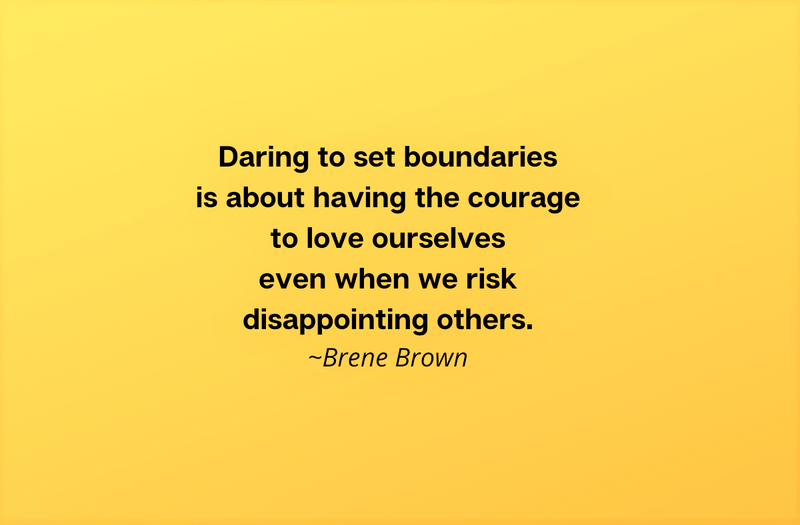When you lose a spouse, the world doesn’t just shift—it shatters. The silence is louder. The bed feels colder. And nothing feels “normal” più.
These aren’t tips to fix grief, but small ways to take care of yourself while you find your way through it.
1. Let yourself cry without explaining it
Allowing tears to flow is not a sign of weakness; it’s a natural response to loss. The world may urge you to put on a brave face, but honoring your feelings is vital. This grief is yours, and it doesn’t need to be justified or contained within social norms. Tears are a release, a way for your heart to express what words cannot.
In those quiet moments, when the house feels too empty, let the tears come. They’re an acknowledgment of the love you shared, fragments of memories flooding back, each drop echoing a story.
Crying without the need to explain yourself frees you from the weight of others’ expectations. It’s part of the healing, part of understanding that love and loss are two sides of the same coin. Embrace those tears as they come, without shame or guilt.
2. Keep food simple—but eat something
When grief wraps around you like a heavy fog, even basic tasks like eating can feel monumental. Keeping your meals simple can be a gentle way to care for your body without adding more to your plate.
Toast with a bit of butter or a warm cup of tea can be enough to nourish you when you have no appetite. It’s about survival, not gourmet cooking. Little things can be acts of self-care, reminders that your body needs sustenance to navigate this painful journey.
Think of food as fuel, not a chore. Your energy is depleted from the emotional toll, and feeding yourself, even in small amounts, is a way to respect your body’s needs. Simplicity can be soothing, a way to create small, manageable rituals in your day.
3. Talk to them out loud if you need to
The silence left by a spouse’s absence can be deafening. Sometimes, keeping their memory alive means speaking to them as if they’re still there. Whisper your thoughts, share your day, or tell them you miss them.
There’s a comfort in pretending they can hear you, that they’re just a breath away, sitting quietly and listening. This practice doesn’t mean you’re stuck; it’s a bridge to their memory, a way to feel their presence when the world feels too quiet.
It’s okay to keep talking to them. There’s no rule that says you must stop. Conversations don’t require answers to be meaningful. These whispered words can be anchors in a stormy sea, grounding you in love that doesn’t fade.
4. Say no to anything that drains you—even if it’s “kind”
Grief demands energy, leaving little room for obligations that feel overwhelming. It’s okay to protect your heart and time by saying no. Even offers meant with kindness can feel draining if they don’t align with what you need.
Boundaries are a form of self-care. They help you conserve energy for things that truly matter to you, without the guilt of disappointing others.
Politely declining, even when it’s difficult, allows you to focus on healing. Your well-being comes first, and those who care will understand. Letting go of obligations doesn’t mean you’re ungrateful; it means you’re mindful of what you can handle today.
5. Wear their shirt. Or don’t. Whatever feels right today
Comfort is a personal journey, and sometimes it means wrapping yourself in their favorite shirt, inhaling the lingering scent of them. Other days, it might mean tucking it away to avoid the ache of remembrance.
This choice is yours and can change daily. Wearing their clothes might feel like a hug from them, a tactile reminder of their presence. It’s about what brings comfort in that moment, honoring the ebb and flow of your emotions.
Don’t feel pressured to make a symbolic gesture; listen to your heart. Whether it’s wearing that shirt or not, both are valid expressions of love and loss. Let your instincts guide you on this unpredictable path.
6. Move your body gently—even just a walk to the mailbox
When grief feels like a weight on your chest, movement can be a gentle way to breathe through the heaviness. You don’t need to run marathons or join a gym. A simple walk to the mailbox can be enough.
This isn’t about exercise; it’s about shifting the stagnant energy within, feeling the earth beneath your feet, and reminding yourself that you’re still here, still moving forward.
A few steps can clear the mind, offering a brief respite from the thoughts swirling around. It’s an act of kindness to your body, acknowledging that even in grief, life continues. Let movement be a soft nudge towards healing, at your own pace.
7. Accept help—even if it makes you feel weird
Grief is isolating, yet it’s also a time when connections can bring unexpected solace. Accepting help may feel strange, like admitting vulnerability, but it’s not a burden to let others support you.
Allow those around you to lighten your load. A homemade meal, an offer to run errands, or simply sitting in silence together can be comforting reminders that you’re not alone.
It’s okay to feel uneasy about accepting help. Remember, it’s not a sign of weakness but an acknowledgment of humanity. Others want to love you through this, and letting them in can be a balm for both your hearts.
8. Don’t rush to “fix” your life
In the aftermath of loss, there’s often pressure to “move on” or “fix” what feels broken. But grief isn’t a project with a timeline or deliverables. It’s a personal journey that unfolds in its own time.
There’s no need to hurry through it, to rearrange your life as if it were a puzzle to solve. Instead, let things be as they are, scattered and incomplete. Your life will find its new rhythm, but it doesn’t have to be today or tomorrow.
Give yourself permission to exist in the uncertainty. Being present with your pain is part of healing, a slow, gentle process that respects both your past and future.
9. Talk about them without worrying if it’s “too much”
Sharing memories keeps your spouse’s spirit alive, weaving them into the fabric of your present. You might worry that talking about them is ‘too much’, but their story is part of yours, deserving to be told.
Let conversations flow naturally, allowing their name to slip from your lips as easily as it once did. Your love doesn’t vanish because they’re gone; it remains, a testament to what you shared.
Invite those around you into your memories, letting laughter and tears intermingle. It’s a way to keep them with you, to remember without reservation, and to honor the life you built together.
10. Let your routines fall apart if they need to
In grief, even the simplest routines can feel insurmountable. It’s okay if your life doesn’t look orderly right now. Letting routines fall apart is a way to acknowledge the upheaval inside.
This isn’t about giving up; it’s about being gentle with yourself. The dishes might pile up, or the laundry might wait longer, but that’s okay. There’s no need to force normalcy when everything feels anything but.
In time, new patterns will emerge. Until then, allow yourself the freedom to not have it together. This messiness is part of healing, an authentic reflection of the storm inside.
11. Avoid people who rush your healing
Well-meaning people may encourage you to ‘move on’ or offer platitudes that feel hollow. Protect your space from those who try to rush your healing. Your grief is personal and doesn’t adhere to anyone’s timeline.
Distance yourself from those who make you feel like a project to be completed. It’s okay to seek solitude or surround yourself with those who understand that healing isn’t linear.
Create a sanctuary of understanding, where you can grieve at your own pace. Trust yourself to know what’s right, allowing space for your emotions to unfold as they need to.
12. Journal, record voice notes—whatever gets it out of your body
Grief can weigh heavily on your body, a tension that needs release. Whether through writing or speaking, expressing your feelings externally can be cathartic.
Journaling lets your thoughts spill onto the page, uncensored and raw. It’s a private space to explore the tangled web of emotions without judgment. Alternatively, recording voice notes might offer a more immediate release, capturing the tremor in your voice as you navigate your sorrow.
Find what gives you solace in expression. These acts are not about finding answers but providing an outlet for the grief inside, honoring your journey through it.
13. Sleep when you can. Don’t guilt yourself for the rest
Rest can be elusive when grief grips you, yet your body craves it to mend the heart’s ache. Sleep when you’re able, even if it means napping during the day or waking at odd hours.
There’s no right way to sleep in grief; it’s about listening to what your body needs. Don’t burden yourself with guilt for resting when the world seems to demand action.
Your nervous system is in overdrive, processing emotions that are overwhelming and complex. Sleep is a refuge, a gentle break from the relentless waves of sorrow. Allow yourself this healing space without shame.
14. Give yourself moments of distraction without guilt
Grief can feel all-consuming, but small distractions offer necessary breathers. Watching a light-hearted show or reading a favorite book doesn’t mean you’re forgetting; it’s a way to rest your weary heart.
Laughter doesn’t betray your loss; it’s part of the human experience that can coexist with sorrow. These moments are essential pauses in your grieving process, reminders that joy still exists, even if fleeting.
Allow yourself to feel good without guilt. These distractions are not betrayals but respites, gentle reminders that life’s lightness hasn’t entirely disappeared.
15. Honor anniversaries—your way
Anniversaries and special dates can trigger waves of grief, but they’re also opportunities to honor your loved one in meaningful ways. Light a candle, listen to their favorite music, or take a walk in a place you both cherished.
These rituals are personal, reflecting the unique bond you shared. You don’t have to follow anyone’s script; what matters is what feels right to you.
Celebrate their life, the love you had, and the memories that continue to enrich your days. This is your way of keeping their spirit alive, honoring them with love and remembrance.
16. Don’t compare your grief timeline to anyone else’s
Grief is uniquely personal, a journey that looks different for everyone. Comparing your timeline to others’ is like comparing footprints in the sand; each path is distinct.
Allow yourself the freedom to grieve without the burden of expectations. Others might seem ‘further along’, but this isn’t a race. Your pace is the right one for you.
In the quiet moments, remind yourself that this is your storm to weather. Each step, no matter how small, is part of moving forward. Trust your rhythm, knowing there’s no wrong way to navigate this landscape of loss.
17. Remind yourself: surviving this is something
Amidst the chaos of emotions, it’s easy to forget the strength it takes to face each day. Surviving this immense loss is a testament to your resilience.
Celebrate the small victories, like getting out of bed or managing a smile. These are not small feats; they’re monumental in the face of such profound grief.
Each moment you choose to live, to continue, is a powerful affirmation of your courage. Acknowledge it, even if quietly, allowing yourself to feel the weight of your survival. It’s a reminder that you’re doing more than just existing; you’re enduring.


















